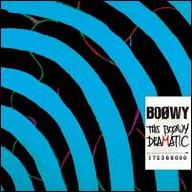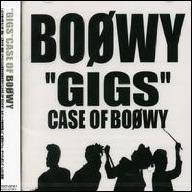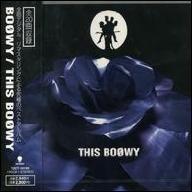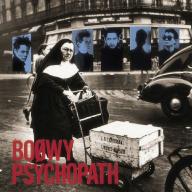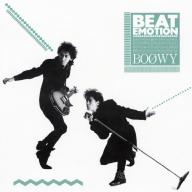After many gigs and mailing a number of demos to various record companies, Boui were signed to Victor Entertainment. The next few years were turbulent -- to say the least -- for the band. Takahashi Makoto joined the band in 1981 (replacing Mamoru, who had decided to call it a day), and in 1982, the newly christened Boøwy released their first album, Moral. The decision to explore a more pop-oriented direction led to the departure of Fuazawa and Moroboshi, but the core of Himuro and Hotei decided to soldier on as a four-piece -- which would be the lineup of the band until its demise in 1987. It was in 1983 that Boøwy made their most important and infamous decision, that being to leave their label and promote, manage, and release their own work themselves. With former Blue Film member Tsuchiya Mamoru taking over as manager, Boøwy were cut adrift, as no one (the music business in Japan at the time was not supportive of the D.I.Y. ethic of other scenes like that of the U.K. or the United States) would promote or give them any coverage.
Eventually, by building word-of-mouth buzz with their popular live shows, they overcame the odds, eventually building up enough of a buzz to sign with small label Yui, leading -- in time -- to their contract with Toshiba EMI. Things started to snowball for Boøwy in 1985, when they released their highly successful breakthrough album, Boøwy. Over the next two years, the band would release four more albums (three studio, one live) and become the biggest and most popular group in Japan. In December of 1987, the band -- possibly due to internal tensions between the founders -- called it quits, and played two hugely successful farewell gigs in April 1988. Kyosuke and Tomoyasu both had highly successful careers after Boøwy. ~ Chris True, Rovi
|
1
|
|
B-Blue |
|
2
|
|
Marionette |
|
3
|
|
Wagamama Juliet |


